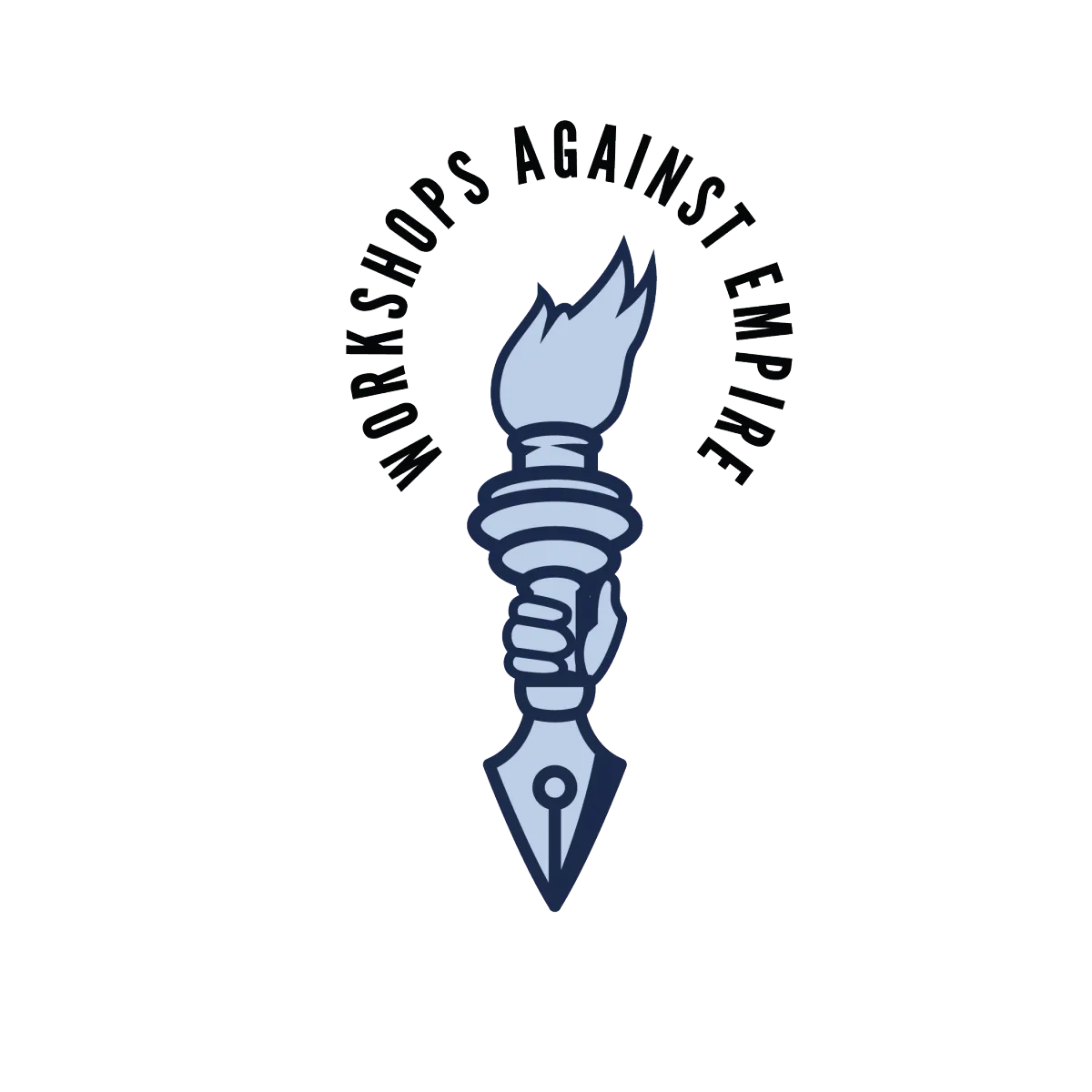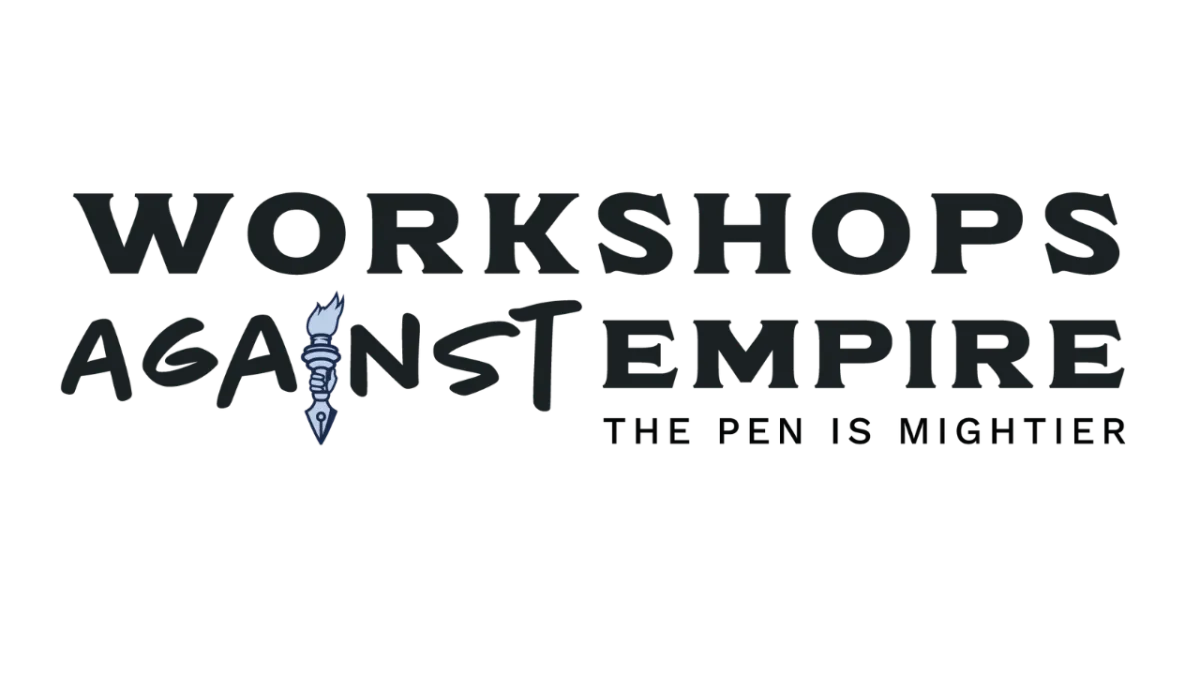Frequently Asked Questions (FAQ)
WHAT WE DO
Tell your story.
Change the world.
Workshops Against Empire is the ONLY program that combines a complete framework for writing a publishable novel with a focus on the social impact of your story.
That’s right. An alternative MFA in Writing program with social justice at its core.
WHAT WE DO
Tell your story.
Change the world.
Workshops Against Empire is the ONLY program that combines a complete framework for writing a publishable novel with a focus on the social impact of your story.
That’s right.
An alternative MFA in Writing program with social justice at its core.
Q: Do I need any previous education in creative writing to make use of what you teach in Workshops Against Empire?
A: No. You do not need to have a degree in writing (or anything else) to make excellent use of what you learn in Workshops Against Empire.
That said: These courses DO assume that you have a command of basic English grammar, and that you love to read. (It may sound harsh, but honestly? If you don’t love to read fiction, you really have no business trying to write it.)
Q: When is the ideal time to take Workshops Against Empire in my writing process?
A: You can start these courses at any point in your process with your current work-in-progress.
That said, “starting from the beginning” with Anatomy of the Novel will work best for those either just starting off with a first draft or embarking on a revision.
Q: Can I purchase these courses individually, or are they only available in a bundle?
A: Yes, you can purchase each of the five Workshops Against Empire courses individually.
However: These courses really do build on each other, from the big picture down to the fine details, and they do so in synergistic ways—so they do tend to work best together. The price of each course individually is $97, compared to the full five course bundle for only $197.
Purchasing individual courses separately also does not give you access to the Story Medicine Community (where you can ask Susan and her coaches any questions you might have about the material or about your work) and its various perks (including exclusive live events and replays)—nor does it come with the Writing Revolution Handbook, which offers a big-picture guide on how to use these courses in your writing process as a whole.
Q: What sorts of questions can I ask in the Story Medicine Community?
A: You can ask any questions you might have about the course material and how it relates to your work.
You can also post any questions you might have about YOUR work—and even share shorter passages of it (up to a page of text from a standard word-processing program) if it’s accompanied by a request for a certain type of feedback. (Meaning, not an open-ended question like “tell me what you think of this.”)
This makes the Story Medicine Community a great way to get “on-call” coaching on your work, with whatever questions you might be wrestling with as you draft or revise.
It’s also a great place to find a critique partner or writing buddy! We have a lot of like-minded writers in this community across a variety of genres.
Q: How long will it take me to write my book after I register?
A: The time it takes to you write your book depends entirely on your particular situation, including how much time you have to write and the complexity of the story you’re telling.
What we can attest to is the amount of time it will take you to complete the Workshops Against Empire coursework—which will guide you through the most efficient process for writing or revising your novel.
Q: How long will it take me to complete the coursework?
A: Different writers work at different paces, but you can expect each of these five courses to take you about a month to complete at between 4-6 hours a week.
You’ll have access to all the courses and the community, workshops and live events for a full year after you register.
Q: What if something big happens in my life and I can’t take advantage of my WAE registration?
A: We get it. If something big happens in your life—e.g., your mom gets sick and you have to take care of her, you lose your job and no longer have time to focus on your creative work, you suddenly have a small human you have to take care of—just let us know.
We’ll pause your membership, and then get it started again when you let us know you have the time to focus on your creative work again.
Q: Do I need any special tools or need to make any other investments to do this work?
A: No…though we make recommendations for a good writing practice like:
Making a special place set aside for the work.
Dedicating a specific time for the work and not letting other folks in your world interrupt that time.
Q: My story doesn’t center social or environmental justice. Can I still register for Workshops Against Empire?
A: Sure. What I teach in Workshops Against Empire will work for anyone writing a novel in any genre (except for a small portion of Anatomy of a Novel, which does not fully apply to mysteries).
That said, a portion of each course does explicitly address these sorts of issues as they apply to the course. So if the very notion of socially engaged work gives you hives, this is probably not the program for you.
Q. How do you define socially engaged fiction?
A: We consider Barbara Kingsolver one of the guiding lights of socially engaged fiction, and we define it the way she does on the homepage of the PEN/Bellwether Prize, which she founded, for the same: “fiction that addresses issues of social justice and the impact of culture and politics on human relationships.”
Other authors who exemplify this type of work include Toni Morrison, Octavia Butler, Ursula K. Le Guin, and Margaret Atwood.
MENU
ON SOCIAL

